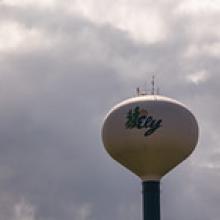
Fast, affordable Internet access for all.

Last week we wrote about the partnership between Long Prairie, Minnesota and the forward-thinking and locally minded local telephone cooperative CTC to build a citywide fiber network and bring affordable, high-speed Internet to everyone in town.
Long Prairie isn’t alone, however, among north-central Minnesota communities needing better options, and for at least two others CTC has become a natural partner. This is both because of its location - offering service across the region in Sullivan Lake, Randall, Pillager, Outing, Nokay Lake, Nisswa, Motley, Mission, Lincoln, Leader, Freedhem, Ely, Brainerd, Baxter, and Crosby - and because it has become one of the most aggressive fiber builders in the state.
Two other cities, specifically, Ely and Little Falls, have also partnered with CTC to bring fiber loops to their business districts. Both communities have faced challenges when it came to building and connecting their residents and businesses to a fiber network.
Dealt a Poor Hand, Ely Forged Ahead
The City of Ely sits on the Southern side of Shagawa Lake with a population of 3,500. While iron used to be what drove the economy, today Ely is a tourist destination and is known as the entry point for the Boundary Waters.

Back in 2010, the City of Ely was in a difficult position. There were plans to bring FTTH to the city as part of the Lake County’s county-wide FTTH broadband project. But unfortunately, the project faced a number of obstacles (including pole attachment agreements, weather, and financing issues), and ultimately construction ended before it could reach Ely.
Likewise, the nearby region has seen improved middle-mile connectivity in the recent past. The Telecommunications and Technology division of the Northeast Service Cooperative (NESC), which owns and operates more than eight hundred and fifty miles of backbone fiber across eight counties in the region, received stimulus funding to extend its middle-mile network further throughout northeast Minnesota, including connecting Ely.
But Ely still hadn’t seen any better city connectivity solutions, and they were having the same issues Long Prairie was having with the incumbents advertised speeds and the reality of service that made the community ineligible for grant funds.
“That’s always been the biggest frustration for us,” Harold Langowski, Clerk and Treasurer for the City of Ely, told us in an interview. “You’re kind of stuck in the middle. You’re shown as served, but being served doesn’t always mean you have good service or that the service is adequate or acceptable to the constituents.”
So the city went another route. In 2017, local leaders began talking with CTC about how to bring better connectivity to Ely’s businesses. They eventually entered into an agreement where the city would do the necessary make-ready work and CTC would assist with the building of a network and lease the fiber from the city that would provide businesses with up to 1 Gbps (Gigabit per second). Ely would fund the project using an Iron Range Resources & Rehabilitation (IRRR) Community Infrastructure grant of $120,000. The overall project, including make-ready work, would end up costing a little more than $400,000, Langowski said.
Ely won the grant on the basis that it would help infrastructure and strengthen reliability for businesses, so the network was primarily built to support the business district. The network, which passes 206 locations, was completed in late April.
“Fortunately, CTC is a cooperative and they see these as long-term investments, whereas other incumbent providers they need to see that return on investment on a shorter duration,” Langowski said.
Speed tiers and prices have yet to be released, but the network is supposed to go up to 1 gig speeds.
While the end result was not a full citywide Fiber-to-the-Home (FTTH) network like Ely was expecting back in 2010, they were still able to gain a network that gave their businesses faster, more reliable Internet access. This not only makes current businesses thrive but opens the door to outside businesses, which may have not considered Ely otherwise, to create more jobs and help grow the local economy.
The network is proof that partnerships can be powerful when they are rooted in the advancement of the community.
Little Falls Makes Big Changes
The City of Little Falls hugs the Mississippi River in central Minnesota and has a population of 8,300. Little Falls, just like Ely, has been trying to attract more businesses to help with economic development, but a big deterrent for businesses when they are looking for a place to take root is a lack of fast, reliable Internet connectivity.
Airborn, a manufacturer that started by making aircraft electronic connectors out of Dallas, Texas in the late 1950s had made its way to Little Falls in 2007. But sharing files over 1,000 miles from Little Falls to Dallas was always a day-long ordeal.
At the time, Charter’s cable service and CenturyLink’s DSL offering were the only two options in town. In 2013, a software company set up shop in one of the city’s business parks and it became clear that the cable and DSL options wouldn’t cut it.

“[The] Little Falls [effort] was really spurred based on business retention,” Buttweiler said. “Thankfully, these businesses went to the city with this problem in advance of it being [so] critical that they had to leave, and the city recognized the urgency.”
As a result, the city of Little Falls and CTC started their partnership around 2013. The city partnered with the Initiative Foundation, Region Five Development Commission and the Morrison County Economic Development Corporation to pool together around $550,000 to lend CTC for the construction of a fiber network. CTC was already serving areas on the edge of Little Falls, and the co-op is based just 30 miles away in the Brainerd-Baxter area.
The network, which took the shape of a fiber ring, would run through downtown Little Falls and into the two main industrial parks where the majority of the city’s requests were coming from.
“It was good foresight from the people that came before me to develop this partnership because it really served a need that we had at the time and knew that we would need in the future,” Jon Radermacher, Little Falls City Administrator told us in an interview.
CTC ended up paying off the loan in seven years and now owns the network. Radermacher said the partnership just made sense.
“If we’re going to get anything done, and we are going to do it in a timely manner and serve the needs to grow the economy in our community, we need to be able to be nimble and be able to work with somebody that’s able to do something. And so far, that’s been CTC,” he said.
The $60,000, 1-Minute Upload
One of the big reasons communities take on these projects is because it can help stimulate the local economy through jobs and the taxes these businesses pay that help support new projects.
Airborn ended up being one of the businesses that Little Falls and CTC connected to the network. Though it cost $60,000 to connect Airborn, once it was that day-long upload speed turned into a minute.

“The value of that $60,000 was paid back pretty quickly and that firm that we connected said ‘We feel that we need to support this,’ so they ended up contributing $10,000 to the project,” Radermacher said.
Once they were successfully connected, not only did the original businesses stay, but new ones came.
“It’s enabled the city of Little Falls to attract new businesses and we continue to expand that network as the city recruits new businesses into the community,” Buttweiler said.
Additionally, CTC helped connect all of the city’s facilities, which had been only connected through wireless service up until that point.
Some of the facilities were already fairly close to the existing fiber line, so the cost of each drop cost $0 to $5,000 depending on the location, Radermacher said.
“It really worked out to both of our benefits that we could do this because for them it could [expand their territory] and where they might be able to serve, and then for us, we just needed that reliability,” Radermacher said. “A lot of our systems have since upgraded - we have a lot more remote capabilities built-in.”
Expansion for Residents
While there has been some demand locally for finding a way to turn the network into citywide FTTH project, there is still a need to build awareness so that community members could in the future get behind a potential multi-million-dollar bond to pay for the expansion.
“Once people realize what it is and its value, they’re gonna [want a fiber option] and realize it’s gonna serve them well and add value to their property,” Radermacher said.
More Communities Getting On Board
CTC continues to work proactively with communities around the state. “There can’t be a one size fits all because not all communities have the same resources of the same needs or the same goals,” Buttweiler told us in an interview.
Additional recent announcements show Pequot Lakes considering a survey as a first step towards new solutions with CTC, and the Township Board in Greenwood recently passing a motion to ask voters to set aside $175,000 next year for broadband projects and a potential partnership with the cooperative.
For more on how CTC has approached its network expansion over the last decade, listen to episode 456 of the Community Broadband Bits podcast, where Christopher talks with CTC CEO and General Manager Kristi Westbrock and Director of Business Development Joe Buttweiler.
Header image from Wikimedia user McGhiever via Creative Commons Attribution-Share Alike 4.0 International license.



